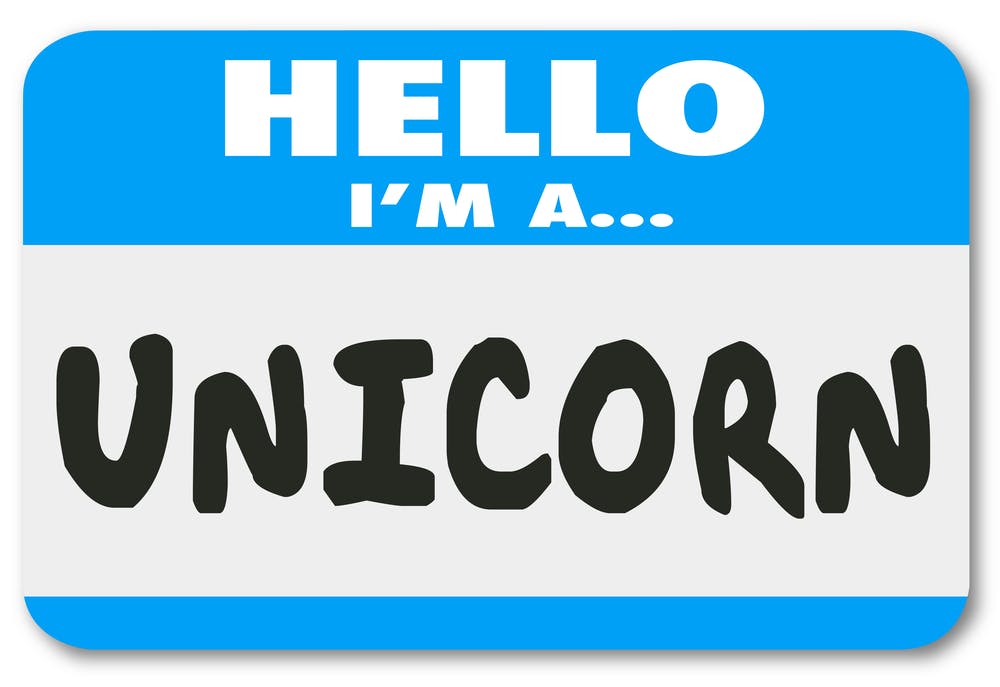LinkedIn, the professional networking site that was valued at $4.35 billion for its 2011 IPO, has struggled to live up to that valuation lately, reporting a 43 percent drop in market value in their most recent monthly earnings report.
In a move that is becoming more common among tech giants, CEO Jeff Weiner is redistributing his annual $14 million stock bonus to employees in an effort to keep them engaged.
He is following Twitter CEO Jack Dorsey’s lead, who gifted a third of his stock award (around $200m) to employees last October under similar circumstances.
Valley of the Unicorns
Companies like LinkedIn and Twitter set the bar for “unicorns” – slang for private tech companies (mostly located in Silicon Valley) that claim valuations of $1 billion or more.
When venture capitalist Aileen Lee first coined the term in 2013, she counted 14 private companies in that category. Today there are more than 10 times that number.
Facebook’s staggering $104 billion valuation before going public in 2012 still stands as the highest for any company, and started an avalanche. Twitter launched their IPO the following year with a valuation of $18 billion. Soon fellow startups Uber, Airbnb, and Snapchat pulled down $50 billion, $24 billion, and $15 billion valuations, respectively.
These companies have a reputation for being among the best places to work, and few other industries can match their salaries, perks, and benefits packages. But these sky-high evaluations can sometimes set unrealistic expectations.
Needless to say, not every tech unicorn lives up to the monumental hype. Groupon, for instance, was valued at $12 billion in 2011, only to experience a disastrous pullback the following year that bottomed their value out to a mere $2.76 per share.
Cutthroat recruiters
Private company or not, a billion dollar-plus valuation generally makes it easier to recruit top talent, garner publicity, and raise their profile.
It’s great for employees, it’s great for the economy, and it’s great for the company. When a tech IPO soars, everybody rides high on the wave.
But when a tech IPO tanks, investors and CEOs are generally protected by risk guarantees and golden parachutes, and the employees are usually the ones left holding the bag, often with multiple job offers from similar competitors with enough cash reserves to poach at will.
One can start to see why CEO Jeff Weiner’s $14 million gift to his employees was not just a magnanimous gesture, but an almost necessary engagement strategy.
Just last month, 19 high-profile Silicon Valley startups saw their valuations slashed by as much as 25 percent in a fit of bean-counter rebellion. Investors have a much lower tolerance these days for companies that don’t live up to their unicorn valuations, and the employees of those companies are starting to realize that stock option benefits, while enticing, can evaporate quickly.
In other words, we can’t all be unicorns. Ironically, equitable bonuses based on poor stock performance may become more of a common occurrence for these highly competitive industries.
Priceless stock
Granted, the CEOs in question are not making a personal sacrifice by offering these bonuses since they generally enjoy richer stock options, but the effect it has on employees is real. We’re basically seeing the dollar value top-tier CEOs place employee engagement.
To LinkedIn employees, it’s worth at least $14 million. To Twitter staffers, it’s $200 million.
That means just for a start, employee engagement is valued at somewhere between $14 million and $200 million to these companies, but we think “priceless” would be more accurate.
This was originally published on the Michael C. Fina blog.
